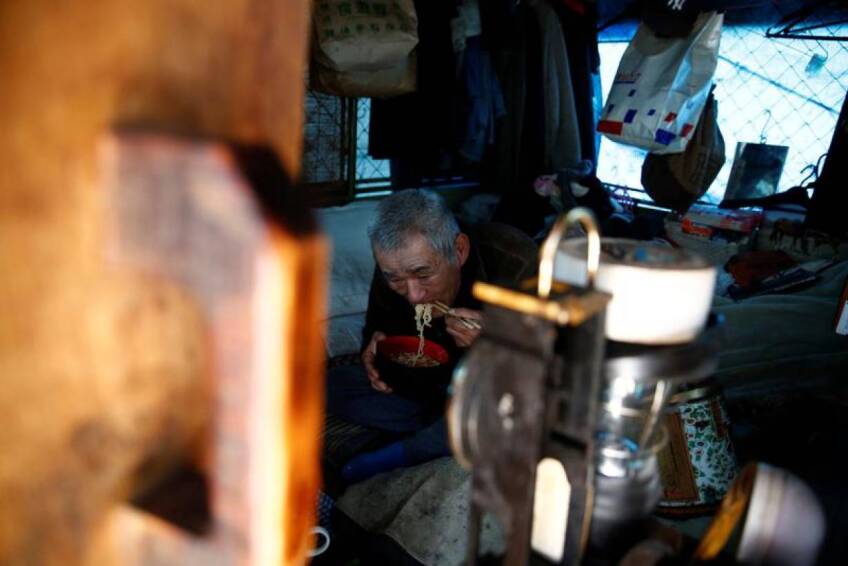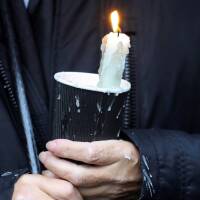Asian Cities Face Pressure to House Net Cafe Homeless and McRefugees
This story was originally published May 5, 2020 by the Thomson Reuters Foundation.
Japan is scrambling to house an often overlooked group of homeless people who slept in internet cafes now shut due to coronavirus lockdowns, with a petition to open the Olympic Village in Tokyo to them garnering support.
At least 4,000 people without secure housing use cyber cafes to sleep, according to the Tokyo Metropolitan Government, with 80% of those employed.
These cafes originally only provided internet services, but now have showers and private booths rentable by the hour, and have become popular with commuters who miss the last train home and the homeless, particularly women, according to charities.

Authorities have got hotel rooms for about half of them, said Ren Ohnishi, chairman of Moyai, a housing nonprofit.
"But many of them are unaware that authorities have secured hotel rooms due to limited communication by the city, and the application process is also very confusing," he told the Thomson Reuters Foundation.
Ohnishi has called on city authorities to open up the Olympic Village for all homeless people now that the 2020 Summer Olympics have been postponed, launching an online petition which has got more than 53,000 signatures.
More on the impact of COVID-19 around the world
The Olympic village was to house 11,000 athletes during the 2020 Games, that are now scheduled to be held in 2021.
"It is a high-capacity accommodation that can be used for a longer period. It would be a symbol of support and solidarity for Japan," Ohnishi said.
The Olympic organizing committee "has not yet received a formal request regarding this matter," according to an email from Tokyo 2020.
The Tokyo Metropolitan Government did not respond to requests for comment.
Some 1.8 billion people worldwide are homeless or live in inadequate housing, according to the United Nations.
Hong Kong is struggling with a similar problem as so-called McRefugees, or people who sleep in McDonald's fast-food restaurants, find themselves out on the streets.
There are more than 400 McRefugees in Hong Kong, according to the charity Society for Community Organization (SoCO).
The Hong Kong government has given grants to charities to provide emergency shelter and short-term accommodation for the homeless, a spokeswoman for the Social Welfare Department said.
A total of 635 such places provide overnight or temporary accommodation for street sleepers, she said.
But these measures fall short of what is required, said Jeff Rotmeyer, founder of homeless charity ImpactHK, and the McRefugees risk missing out on welfare and health services more than those in shelters.
"They are the worst off," he said. "They are visible yet invisible to most, as they do not appear to be homeless, and are not in the places where the homeless typically are."
Reporting by Rina Chandran @rinachandran; Editing by Belinda Goldsmith.





